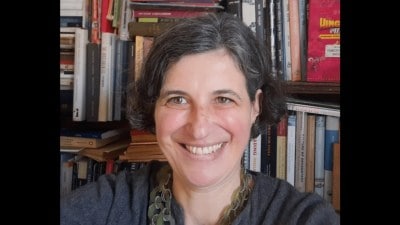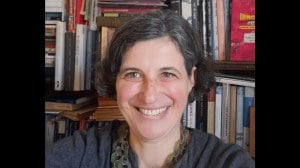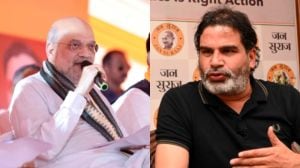Hawks brushed aside, Govt pushes ahead with J-K peace process
NEW DELHI, JANUARY 23: Despite strong provocation from militant groups and hawks within, the Government today gave its peace initiative in...

NEW DELHI, JANUARY 23: Despite strong provocation from militant groups and hawks within, the Government today gave its peace initiative in Kashmir another chance with a one-month extension of the ceasefire.
Although there are no caveats to the ceasefire in the announcement, which came after a lengthy discussion by the Cabinet Committee for Security Affairs this morning, there are indications that three of the most active Pakistan-based groups have been “excluded” from the truce. These are Lashkar-e-Toiba, Jaish-e-Mohammed and the Harkat-ul-Mujahideen. These three groups have anyways been opposed to the ceasefire.
In fact, after the Red Fort attack and the Lashkar threat to the Prime Minister, security forces were given a signal to step up operations against these groups which were openly trying to sabotage the peace process. An indication of the tactical shift in strategy in the Valley is available from official figures of the number of militant deaths in the fortnight after January 13. According to these statistics, as many as 33 militants were killed. The majority of them were members of one or the other of the three groups, government sources said.
The Lashkar and Jaish were specifically mentioned in the statement from the CCS as organisations which must be “controlled and curbed by Pakistan”. The statement strongly criticised Islamabad for “not recognising the demand of time for peace” and for “continuing to promote, encourage and abet cross-border terrorism”.
“The Government believes violence must be ended and peace — which has been welcomed by the people of J & K — given every chance. The present phase of peace is being extended, in that hope, by another month,” it said.
Briefing correspondents after the meeting, External Affairs Minister Jaswant Singh asserted that the extension decision was unanimous. Kashmir was discussed for about one-and-a-half of the three hours for which the CCS met. Most of the deliberations were in the form of detailed assessments of the prevailing ground situation from all the agencies connected with Kashmir.
The decision to extend the ceasefire was apparently taken after a short discussion. It seemed to be foregone conclusion with none of the agencies really opposing it.
An indication of the Government’s mind came from Commerce Minister of State Omar Abdullah who told The Indian Express yesterday that the ceasefire would be extended. His father, J&K Chief Minister Farooq Abdullah, is believed to have been taken into confidence about the extension which goes against his reported advice to the Government last week when he described the ceasefire as “meaningless”.
With the Government determined to plough ahead with the peace process in the face of militant activity, the proposed visit to Islamabad by Hurriyat leaders is till on the cards. Vajpayee himself gave an indication of this today, saying there would be no delay in giving them passports. He added that the Home Ministry was looking into it.
However, the timing of the visit is uncertain. It seems all the concerned parties, the Hurriyat, Pakistan and India, want to let things cool down before reviving the trip. Much depends on whether the militants will cooperate in restoring a semblance of normalcy in the Valley so that Vajpayee’s initiative moves forward.
Militants reject extension
`Meaningless step’: Three major militant groups have rejected New Delhi’s extension of the ceasefire, calling it a propaganda ploy. Hizbul Mujahideen, Lashkar-e-Toiba and Al-Badar Mujahideen said India’s second extension was meaningless since the security forces, according to them, had not eased their oppression of the Kashmiri people.
Jamat welcomes decision: The Jamat-e-Islami has welcomed the extension of the ceasefire, saying the step could be a positive one if it helped arrest the worsening human rights violations committed allegedly by the security forces.
Lone praises PM: Hurriyat leader Abdul Gani Lone said the development was welcome but unexpected and praised the PM. “We were not expecting an extension because Farooq Abdullah, L K Advani and the RSS chief were hellbent on sabotaging the peace move,” he said.
Bandh in Srinagar: Normal life came to a standstill in the Valley on Tuesday following a general strike called by the Hurriyat Conference against alleged custodial killings and disappearance of its activist, Masarat Alam, after his arrest by police last week.
Implement it on ground: Pakistan
`Should lead to dialogue’: Pakistan said the extension would be meaningful if it leads to commencement of a purposeful dialogue for peaceful resolution of the Kashmir dispute. A foreign office statement said it hoped the decision would be implemented on the ground unlike in the past two months when, according to them, Indian forces continued their campaign of terror against the Kashmiri freedom struggle.
`Meaningless step’: Three major militant groups have rejected the extension, calling it a propaganda ploy. Hizbul Mujahideen, Lashkar-e-Toiba and Al-Badar Mujahideen said it was meaningless since the security forces, according to them, had not eased their oppression. Two pro-Pakistan outfits, Al-Umer-Mujahideen and Jamiat-Ul-Mujahideen also rejected the step.
Jamat welcomes decision: The Jamat-e-Islami has welcomed the extension of the ceasefire, saying the step could be a positive one if it helped arrest the worsening human rights violations committed allegedly by the security forces.
Lone praises PM: Hurriyat leader Abdul Gani Lone said the development was welcome but unexpected and praised the PM. “We were not expecting an extension because Farooq Abdullah, L K Advani and the RSS chief were hellbent on sabotaging the peace move,” he said.
Bandh in Srinagar: Normal life came to a standstill in the Valley on Tuesday following a general strike called by the Hurriyat Conference against alleged custodial killings and disappearance of its activist, Masarat Alam, after his arrest by police last week.



- 01
- 02
- 03
- 04
- 05




























